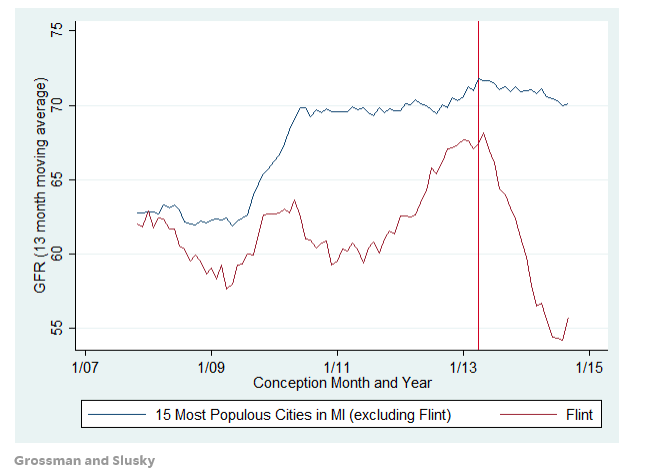
Introduction:
Waterlogic, an international provider of office water coolers, discuss the importance of staying hydrated during pregnancy. Within the article, they cover the most common causes for concern with regards to drinking water; and flag items of which everyone, particularly those who are pregnant, should make themselves aware.
In recent years, there have been many news stories across the globe covering contaminated drinking water supplies awhile most people in developed countries believe themselves to be immune to such issues – that tap water is safe to drink – these stories shine a light on the potential dangers we face – even in the safety of our homes.
So, no matter how clean you think your tap water supply is, always be aware that there could be an invisible risk.
Are You Pregnant? It’s Time to Check Your Drinking Water Quality
If you’re on your way to having a family, you’ll be eating and drinking for two but do you pay enough attention to everything that passes your lips? There are many sources of unknown contaminants that can not only harm the health of the mother but also affect the well-being of the developing baby.
In the US, one-in-four sources of tap water are either unsafe to drink, or inadequately monitored for contamination. This means your drinking water may have excessive levels of arsenic, nitrates, heavy metals, or other pollutants – all without you realizing. These contaminants can cause anything from a mild illness as simple as an upset stomach to something more severe such as a neurological disorder. A mum to be must check the water quality of the area in which they live; or consider switching to a filtered water source.
The Importance of Hydration During Pregnancy
The Institute of Medicine suggests pregnant women drink around ten 8oz. glasses of water each day. Milk, fruit juices, coffee, and tea all contribute to your fluid intake but it’s important to note, professionals recommend limiting caffeine to less than 200mg per day.
Adequate hydration is vital to the proper functioning of your internal systems, and so the transfer of vitamins, minerals, and other nutrients to your baby. Fluids also reduce the likelihood of common conditions during pregnancy such as constipation, hemorrhoids and bladder infections. Finally, drinking enough fluid in the final trimester helps avoid issues such as preterm labor. While adequate hydration can be tricky during the latter stages of pregnancy due to morning sickness, carrying a reusable water bottle and sipping little and often is the best way to overcome the issue.
Just be sure to opt for a phthalate-free plastic bottle – or better yet, find a reusable vessel – as studies have shown phthalates are not only a carcinogen but can also affect the development of children.
Be Alert to Water Crises
Unfortunately, water crises are a more regular occurrence in the US than one might expect. The Flint water crisis occurred in the state of Michigan, US, when lead and other toxins leached into the public water supply resulting in a health crisis that affected the local population.
As a stark reminder as to the effect these substances can have – particularly on those pregnant or even those looking to conceive – studies flagged the birth rate subsequently declined by upwards of 12-percent with the fetal death rate increasing by 58%.
The graph below illustrates the precipitous decline in the Flint birth rate when compared with other Michigan cities between the end of 2013 and 2015 – so before, then just after the crisis. The authorities altered the Flint water supply in April 2014, after which the population was exposed to the contaminated water. As you can see, Flint fertility drops off a cliff, while the surrounding cities showed no drop-in birth rates.

Source: https://www.motherjones.com/environment/2017/11/we-now-known-just-how-bad-the-flint-water-crisis-was-for-pregnant-women/
What Are the Common Contaminants in Drinking Water?
Microbes and Parasites:
The most common culprits are tiny microorganisms like giardia, salmonella, and shigella. The same bacteria result in most types of food poisoning. These microbes colonize stagnant waterways and multiply if the water source is not properly monitored or treated. Giardia outbreaks are common among pet dogs who drink from puddles or swim in lakes. Due to the contagious nature of the parasite, the bug can easily transfer from animal to person. For pregnant women, digestive infections like these can be debilitating. Painful cramping, vomiting, and severe nausea could land you in hospital with the effects on your growing child often hard to anticipate.
Heavy Metals:
Heavy metals such as lead, copper, and arsenic are often found in groundwater. Each occurs naturally in soil but also have wide-ranging applications across agriculture, industry, and infrastructure, so can quickly make their way into a water supply. While in low levels, their impact on health is negligible, should the levels rise, they can cause severe digestive issues, liver disease, and even cancer.
The authorities have a responsibility to monitor the levels of these toxins, but if you are trying to conceive or are already pregnant, you may wish to carry out a water purity test to ensure you are not drinking from a contaminated source.
How to Check Your Water is Safe
Provided you take your water from a municipal water system, your supplier has the mandate to guarantee your supply is safe. Suppliers must also alert consumers if any potential contaminants exceed government limits. However, as seen in Flint, MI, the process does not always work. You can check the history of your water supply via the Safe Drinking Water Information System database, which details water safety in your state and county, while also highlighting recent reports of contaminants.
Such reports only test water at the source, however, so you may wish to double-check water quality at the faucet. Many pipes could introduce contamination before the water reaches your tap, so a private test may be the only solution to guarantee peace of mind for both you and your baby.



























